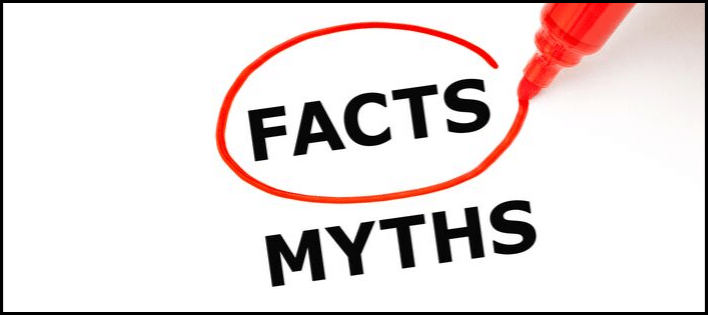Whether you purchase insurance, or you obtain it through your employer in Toronto, you want to know that it will be there when you need it most. Unfortunately, there are quite a few disability insurance myths that may cause you unnecessary anxiety.
The goal is to separate fact from fiction and provide you with the information you need to put your mind at ease about disability insurance in Ontario.
What is Disability Insurance?
Before we can dispel disability insurance myths, we’d like to provide you with a little information about what disability is and who qualifies. Disability insurance is usually divided into two categories, short-term disability and long-term disability. In addition to employer-provided and private plans, you may also be covered under the Canada Pension Plan (CPP).
Short-term disability is defined as an injury or illness that renders you unable to work for a short period of time. For legal purposes in Canada, that’s determined as six months or less.
On the other hand, long-term disability is considered if you experience an injury or illness that continues to render you unable to work after your short-term disability coverage and any employer-mandated sick days have been used. This type of plan will generally pay between 60 – 70 percent of your regular income.
Who Qualifies for Disability in Ontario?
In order to obtain payments for a short-term disability, you must be over 18 years old, employed, and have an illness or injury that outlasts your EI payouts but last less than six months. Long-term disabilities are injuries or illnesses that are still present and prevent you from working after your EI and short-term disability are exhausted.
Myths About Disability Insurance in Canada
Despite that fact that one in three Canadians will experience a disability at some point in their working lives, nearly half of Toronto residents believe that disability is something rare.
Misinformation like that can lead Canadians to put off purchasing protection, leaving them vulnerable to physical and financial hardships if they’re ever unable to work due to an injury.
The truth is, disability is common and takes many forms, some of which aren’t apparent when you just meet someone for the first time. But, that’s not the only myth about disability that’s common in the Provinces. Here are nine more that may surprise you.
Myth #1: My Insurance at Work Will Cover Me if I’m Injured
That depends on the nature of your injury and the type of coverage you have at your job. Generally speaking, employer-provided insurance and Worker’s Compensation only cover you for work-related injuries or occupational health problems. Check your policy to make sure.
Myth #2: Worker’s Compensation Will Cover All of My Expenses
Not really. Full coverage is usually provided by WSIB, and that is usually only available at larger companies or for full-time employees. WC may not cover all expenses, like certain treatments, medical aids. or medications.
Myth #3: More Policies Mean More Money if I’m Ever Disabled
Disability insurance is not like a life insurance policy where you can get multiple payouts. Your disability may be tied to your income and payments capped.
Myth #4: Disability Pays Just Like Life Insurance
Again, not the same type of protection. The idea with disability insurance is to replace your income, so payouts occur at regular intervals during the term of your disability.
Myth #5: If I’m Disabled, I’ll Start Getting Money Right Away
There’s usually an investigatory period of 120 days in order to determine eligibility. You may also be turned down initially and have to file an appeal.
Myth #6: I Can Lose My Job if I’m Collecting Disability for Too Long
Most employees are protected from termination under the Ontario Human Rights Code. An employer can only fire a disabled employee if they’ve exhausted all efforts to accommodate the disability and continued employment negatively affects the business or work environment.
Myth #7: I Can Avoid Becoming Disabled by Changing My Lifestyle
Although maintaining a healthy lifestyle will reduce your risk, it doesn’t eliminate the possibility of disability altogether. Even the most health-conscious and careful people can still develop a mental illness, disability or be involved in an accident.
Myth #8: If I No Longer Meet the Legal Definition of Disability, I Have to Return to Work
That’s not entirely true. Having disability payments run their course doesn’t necessarily mean that you’re no longer disabled. In such cases, the employer must make reasonable accommodations should you decide to return to your job.
Myth #9: All Disabilities Are from Physical Injuries
We usually picture someone who’s in a wheelchair or otherwise obviously injured when we think of disabled persons. However, many conditions that are legally classified as disabilities have few or no outward signs or symptoms. This includes emotional disabilities due to depression and some mental illnesses as well as chronic health conditions like MS or epilepsy.
Final Thoughts
If you feel that you have a valid claim and have been denied disability payments or coverage, a practicing injury lawyer in Toronto would be happy to talk to you about your case. With a legal professional to guide you, you’ll have the facts you need to make important decisions about your life.
Don’t let second-hand information and myths about disability insurance cause you sleepless nights.















